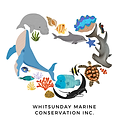




Want to know more about our humpback whales?
Dive into some bite-sized research below!
All Videos
All Videos


Using Short-Term Studies to Complement Long-Term Monitoring

Songs of the Eastern Australian Humpback Whales

Humpback Whale Spatial Ecology in the Great Barrier Reef
Meet the Researchers

Research into marine mammal behaviour and spatial ecology of humpback whales on the Great Barrier Reef.
Dr Josh Smith, Research Scientist and Policy Officer
Josh has over 20 years marine mammal experience across government, research and consultancy with a strong focus on applied cetacean science to inform cetacean management and policy. Josh is currently a Senior Research Marine Mammal Scientist at the Australian Antarctic Division, having previously been a senior policy officer within the Migratory Species Section of the Department of Climate Change, Energy, the Environment and Water.
Josh’s research interests cover a range of conservation management areas that include quantitative risk assessments of vessel strike to cetaceans, characterising anthropogenic underwater noise, identifying cetacean critical habitat, monitoring threatened and migratory species and application of passive acoustics to survey cetaceans. Josh has led the development of a ten+ year research program on humpback whale spatial ecology in the Great Barrier Reef World Heritage Area that has focussed on spatial identification of humpback whale breeding areas in the GBR and interactions with human activities, such as risk of vessel strikes.

Songs of the Eastern Australian humpback whales
Professor Michael Noad, University of Queensland
Michael graduated with a Bachelor of Veterinary Science from UQ in 1990. After working primarily as a small animal vet in Queensland and the UK, Mike returned to Australia to undertake a PhD in humpback whale acoustic behaviour at the University of Sydney in 1995. In 2002, after finishing his PhD, Mike became a postdoctoral fellow in the School of Integrative Biology at UQ. In 2003 he was employed as a lecturer in the School of Veterinary Science.
He is currently a professor at UQ, dividing his time between veterinary science, where he teaches anatomy, and marine science, the focus of his research. In 2019 he became the Academic Director of the Moreton Bay Research Station, and in 2022 the Director of the Centre for Marine Science while still retaining a substantive appointment in the School of Veterinary Science.

Using Short-Term Studies to Complement Long-Term Monitoring
Dr. Barry McGovern, Research Associate
Barry joined Pacific Whale Foundation Australia in 2021 as the Australian Research Associate where he manages the research team and leads the field operations to conduct research on the threats cetaceans face in East Australia. He completed his PhD research at the University of Queensland, in Brisbane, where he studied the acoustic behaviour of bottlenose dolphins.
In his home country of Ireland, he has worked with universities, non-profits and in industry, all focused on the conservation of cetaceans and other marine megafauna. He spent two years in Scotland working for a government agency as the marine strandings coordinator, monitoring cetacean strandings, undertaking necropsies and attending live strandings. He also spent a number of years in Namibia and South Africa, running field operations for a cetacean research non-profit on the Skeleton Coast. Barry sits on the Hervey Bay Whale Heritage Site Steering Committee and is a member of the European Cetacean Society, the Society for Marine Mammalogy and ORRCA research and rescue.
Want to get involved in acoustic monitoring, join the WoW Steering Committee or just want to find out more about Whales of the Whitsundays? Send us an email or find us on Facebook.

